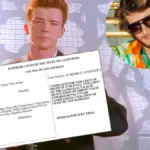The First Sale Doctrine provides the purchaser of a copy of a copyrighted work the right to sell, display or otherwise dispose of that particular copy, notwithstanding the interests of the copyright owner.
This doctrine is now codified at 17 U.S.C. § 109 but was first recognized by the U.S. Supreme Court in the 1908 case of Bobbs-Merrill Co. v. Straus. The court ruled that the publisher of a book did not have the right to control the price at which it was sold at retail once the publisher had sold the book to a distributor.
The first sale doctrine allows you to lend, resell, give away, or display a book, record, or other copyrighted work that you’ve bought, even though you don’t own the copyright in that work. But keep in mind that the first sale doctrine does not include the right to make new copies of the copyrighted work—reproduction rights still belong exclusively to the copyright owner.
In addition, the privileges created by the first sale principle do not “extend to any person who has acquired possession of the copy or phonorecord from the copyright owner, by rental, lease, loan, or otherwise, without acquiring ownership of it.” See 17 U.S.C. § 109(d). Nowadays, most computer software is distributed through the use of licensing agreements. Because the software is “licensed” and not “sold,” the copyright holder remains the “owner” of all distributed copies, and the first sale doctrine typically doesn’t apply.
Furthermore, the implications of the First Sale Doctrine in the digital era raise new questions about its application. Many forms of digital content, including eBooks and digital music files, are typically licensed to the user rather than sold. These digital licenses often include restrictions on the transfer of the files, leading to debates over whether and how the First Sale Doctrine can apply to digital goods.





